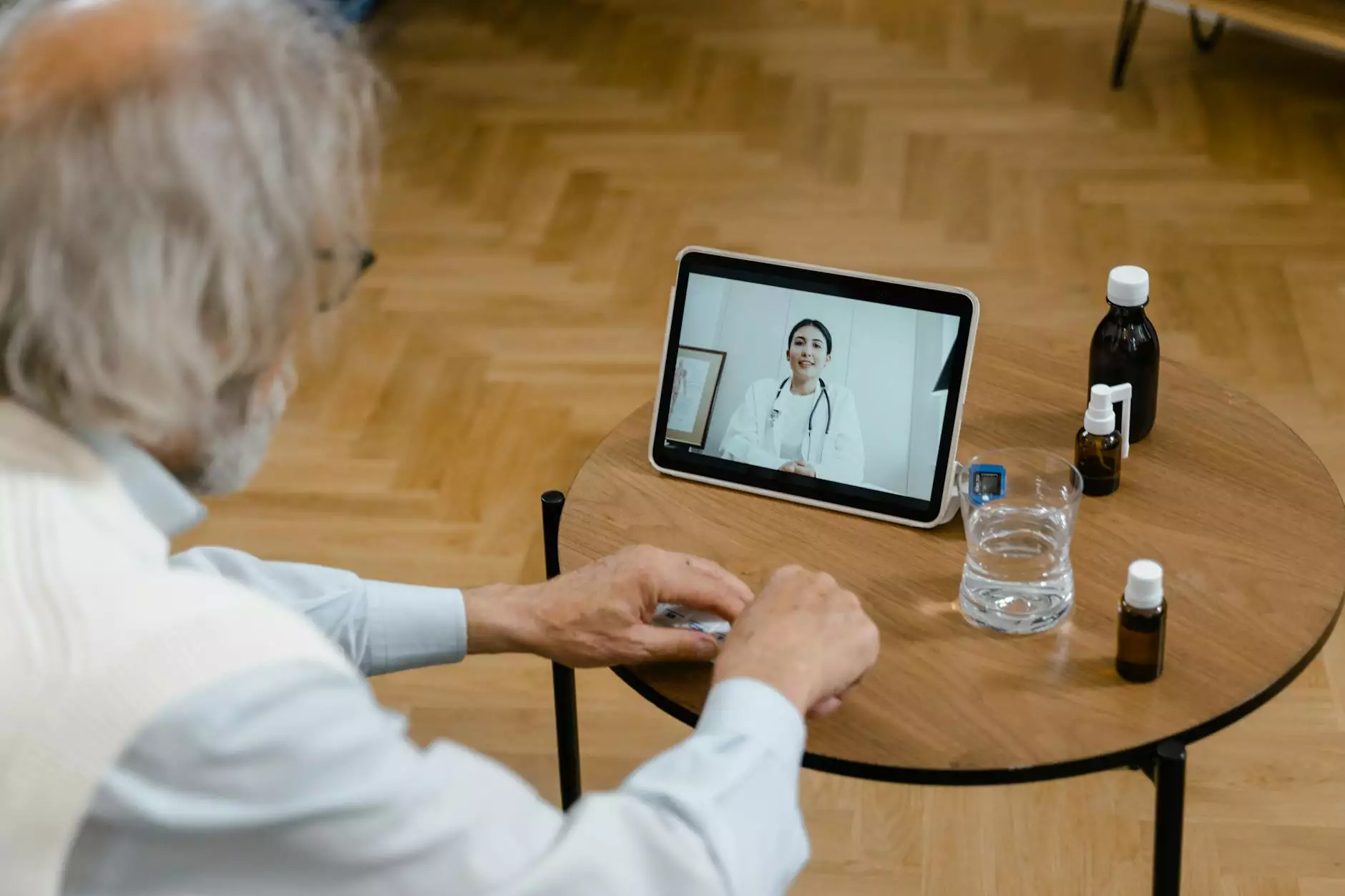Transforming Behavioral Health: The Future of Telehealth Services

In recent years, the telehealth services for behavioral health sector has experienced unprecedented growth. As healthcare providers and patients alike recognize the profound benefits of virtual counseling and therapy, the demand for innovative solutions has surged. This article will delve into the key features, advantages, and transformative potential of telehealth services, illustrating how they revolutionize access to mental health care.
Understanding Telehealth Services for Behavioral Health
Telehealth services encompass a wide range of health-related activities conducted remotely via digital technology. Specifically, in the realm of behavioral health, these services include:
- Virtual Therapy Sessions
- Remote Psychiatric Consultations
- Behavioral Interventions via Video Calls
- Online Support Groups
- Mental Health Screening and Assessments
The essence of telehealth services for behavioral health lies in their ability to eliminate geographical barriers, thereby providing individuals with critical access to therapeutic resources regardless of their location.
The Rising Need for Telehealth Services
The increasing prevalence of mental health issues amidst modern societal challenges calls for immediate and innovative responses. Recent studies indicate that mental health disorders affect millions globally, with access to care being a significant obstacle. The intertwining crises of the COVID-19 pandemic further underscored the urgent need for accessible mental health support. Here are several reasons why telehealth services are more relevant than ever:
- Access to Care: Many individuals live in areas with limited access to mental health professionals. Telehealth services bridge this gap, allowing patients to consult with specialists in urban centers from the comfort of their homes.
- Convenience: Scheduling appointments becomes notably easier without the need for travel. Patients can fit their therapy sessions into their work schedules or family responsibilities without the logistical headaches.
- Stigma Reduction: For some, accessing mental health services can carry a stigma. Telehealth provides a degree of anonymity that may encourage individuals to seek help without fear of judgment.
- Continuity of Care: Telehealth services enable patients to maintain regular appointments, even in the face of personal challenges such as illness or relocation.
The Benefits of Telehealth Services for Behavioral Health
The global shift towards telehealth services for behavioral health has yielded numerous benefits for both patients and providers:
1. Enhanced Accessibility
Telehealth eliminates the need for patients to commute, making therapy accessible to those with mobility challenges, rural residents, and busy professionals. Patients can easily engage in their treatment plans without logistical barriers.
2. Increased Efficiency
Digital platforms allow for streamlined processes, from scheduling to billing, significantly enhancing operational efficiencies for mental health providers. This results in greater flexibility to accommodate patient needs.
3. Diverse Treatment Options
Telehealth facilitates the development of diversified therapeutic models, including:
- Cognitive Behavioral Therapy (CBT) via video
- Mindfulness and Stress Reduction Programs
- Support Groups for Specific Conditions
- Crisis Intervention Services
4. Comprehensive Care Coordination
Through telehealth services, providers can more easily coordinate care among various medical professionals, ensuring a holistic approach to mental health treatment. This integrated care fosters better health outcomes for patients.
5. Real-time Monitoring and Follow-ups
With the advent of technology, providers can implement real-time monitoring systems where they can track patient progress and adjust treatment plans accordingly. This adaptability leads to tailored care that meets individual needs.
Challenges and Considerations
While the benefits of telehealth services for behavioral health are profound, it is crucial to consider certain challenges:
1. Technological Barriers
Not all patients have equal access to the necessary technology or reliable internet connections. This divide may exclude some individuals from benefiting from telehealth services.
2. Privacy and Security Concerns
Patient privacy and confidentiality must remain a top priority. Providers must ensure that their digital platforms comply with health regulations and secure sensitive patient information.
3. Limited Physical Examination
Certain mental health conditions that may involve physical assessments could pose limitations when evaluated remotely. Hence, integrative approaches that include occasional in-person visits are essential.
Implementing Effective Telehealth Services in Behavioral Health
Successfully integrating telehealth services into behavioral health practice involves several key elements:
1. Training and Development
Healthcare professionals must be adequately trained to deliver effective virtual care. This training includes technical proficiency and understanding the nuances of virtual engagement.
2. Utilizing Advanced Technologies
Investing in high-quality and user-friendly telehealth platforms enhances the patient experience. Features such as secure messaging, appointment reminders, and integrated electronic health records (EHR) are essential.
3. Tailoring Services to Individual Needs
Providers should assess individual patient needs and preferences to customize their approach, ensuring that telehealth services are both effective and comfortable for patients.
4. Continuous Feedback and Improvement
Regular feedback from patients can help providers identify areas for improvement. Adapting services based on patient experiences leads to higher satisfaction and better clinical outcomes.
The Future of Telehealth Services in Behavioral Health
The future outlook for telehealth services for behavioral health is optimistic as technology continues to evolve. Anticipated advancements and trends include:
- Artificial Intelligence Integration: The use of AI for analyzing patient data can enable personalized treatment plans based on predictive analytics.
- Virtual Reality Therapies: VR technology may offer innovative methods for exposure therapies in conditions such as anxiety and PTSD.
- Increased Regulatory Support: As telehealth becomes more mainstream, we expect to see enhancements in regulations that protect both patients and providers.
- Expanding Global Access: Telehealth holds the potential to bring mental health services to underserved populations worldwide, fundamentally changing the landscape of behavioral health.
Conclusion
In conclusion, telehealth services for behavioral health represent a significant step forward in improving mental health care accessibility and effectiveness. By embracing technology, both providers and patients can work together to overcome barriers to care, ensuring that treatment is available to those who need it most. With continued innovation and adaptation, the future of behavioral health care through telehealth services is bright, promising improved outcomes and enhanced well-being for individuals everywhere.
At Mindcare Neuroscience, we are dedicated to providing exceptional telehealth services tailored to meet the unique needs of our patients. Explore our comprehensive offerings today to discover how we can support your mental health journey.









